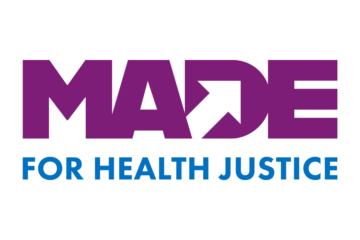Earlier this month, my Twitter, Facebook, and LinkedIn were abuzz with health care news.
First, President Obama became the first sitting president to publish in a peer-reviewed journal — and the prestigious Journal of the American Medical Association no less — focusing on the impact of the Affordable Care Act (ACA) on the numbers of insured and access to care. While the ACA included mandates that required coverage for preventive care and funding for the Prevention and Public Health Fund, the article focused on the personal and clinical gains of ACA.
Second, Hillary Clinton pledged to provide $40B over 10 years for community health centers as part of her commitment to provide “universal, quality, affordable health care for everyone in America.”
Third, Bernie Sanders said that Hillary’s response represents “an important step forward in expanding health care… and expanding health insurance and health care access to tens of millions of Americans.”
Fourth, the Centers for Medicaid and Medicaid Services approved $2 billion in federal funds to California’s public hospitals to pay for uncompensated care.
All of these stories played against the backdrop of Congress’ failure to allocate additional funding to fight Zika.
Yes, it certainly was a good week for health… CARE.
The health care conversation is important. We have excellent care in the United States. The ACA has brought the number of uninsured in the US to record low levels. However, health care investments alone have not impacted our health measures. In fact, despite all of our investment in health care, growth in life expectancy in the U.S. has slowed compared to other economically developed countries.
This should really come as no surprise. Health and health care are two related, but separate issues. Think of it like being on a sinking ship. You need to bail the water (paying for health care services, focusing on access and insurance), but that doesn’t solve your real problem (preventing illness in the first place). It only keeps you afloat — temporarily. You’ve got to find the hole and fix it.
You can only bail the water for so long until the boat sinks. The U.S. spends more than $3T on health care — annually. Most of these costs are due to the increasing burden of chronic disease driven by social determinants like social and economic opportunities; the resources and supports available in our homes, neighborhoods, and communities; the quality of our schooling; the safety of our workplaces; and the cleanliness of our water, food, and air.
Despite the fact that these broader community factors account for 80 percent of health outcomes, the U.S. spends only about 3 percent of U.S. health spending on government-administered public health. That works out to about $300 annually per person when U.S. health care expenditures per person are on track to reach $10,000.
As the hole has grown larger, we’ve bailed faster and with bigger buckets. Since 1960, health care spending has grown five times faster than the nation’s GDP. A related consequence of our affinity for health care spending is that every dollar invested in bailing the boat is a dollar that is not invested in developing new technology, growing business, or innovating new solutions to emerging problems.
I understand why we focus on health care. Pills and procedures are immensely more palatable than challenging the private interests of those whose profits are linked to sales of sugar-laden, high calorie foods, alcohol, and tobacco; to the continued consumption of high volume health care; and to relocating residents to make way for high cost real estate development. Wealthy, powerful interests often support, and even profit from, new tests and treatments, but have little interest in policies and regulations to create affordable housing, livable wages, and earned sick and family leave.
The public is complicit in this over-reliance on health care as well. We’ve all that had conversation with our doctors: change your diet and exercise or take this pill. All too often we demand the pill. And honestly, when any of us are really sick, we are grateful that medications and treatments are available. But ask anyone who has hypertension, diabetes, or heart disease what they would choose, and you might get a different answer. Sure, they are grateful for the pills that they now have to take every day for the rest of their lives, but they would probably have preferred to prevent their illness in the first place.
We need to fix the imbalance between health and health care.We need to stop buying buckets and start looking for the hole in the bottom on the boat. We need fewer pills and procedures and more partnerships and policies that address the social determinants of health — increasing access to healthy food choices, early education, and green spaces — that have the potential to create vibrant, prosperous communities where people can live healthier, longer lives rather than contributing to poor health.
We all value health care treatment and disease research. Too many of us have lost people to illness for which we hope there will one day be a cure. The problem is funding ONLY health care, which only helps those who are already sick. We’re not getting to the root of the problem. It’s time to stop buying buckets and start finding ways to repair our boat.
This post first appeared in the Huffington Post.




